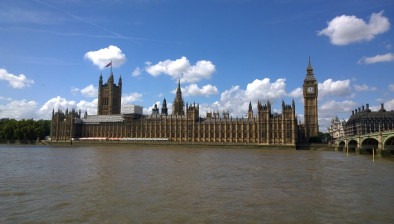Scottish economic output fell by 2.5% in first quarter of 2020
Scotland’s GDP fell by 2.5% during the first quarter of this year, according to statistics announced today by Scotland’s Chief Statistician.

Over the year, compared to the first quarter of 2019, the economy has contracted by 2.3%.
During the first quarter output in the construction sector contracted by -3.4%, output in production contracted by -3.3%, and output in the services sector contracted by -2.2%.
New monthly GDP statistics have also been published today for the first time. These are being developed by the Scottish Government to help track the economic impact of the coronavirus pandemic, and are badged as experimental statistics (not national statistics).
The new statistics show that Scotland’s GDP is provisionally estimated to have fallen by 18.9% during April, after a fall of 5.0% in March. This indicates the direct economic impact of COVID-19 in Scotland during the first weeks and full month of the lockdown phase.
During the first quarter as a whole, and in the latest months, output has fallen in nearly every industry sector. The industries with the largest falls in output over the latest two months are those which have been required to close or where working at home is not possible.
Economy secretary Fiona Hyslop said: “The coronavirus pandemic is having an extremely serious impact on the economy right across the UK and - as these figures demonstrate - Scotland is no exception.
“Ever since the start of this crisis the Scottish Government has been working tirelessly to keep businesses afloat and ensure as many people as possible keep their jobs, and we will continue to do that. So far this has included a tailored package of more than £2.3 billion in business support.
“Yesterday we announced a £230 million Return to Work package to help stimulate Scotland’s economy following the pandemic. This initiative, covering construction, low carbon initiatives, digitisation and business support, will help to create jobs and generate a flow of work for businesses. We have also set up an Advisory Group on Economic Recovery, led by Benny Higgins, which will advise soon on further actions needed to support recovery.
“Today I will join ministerial colleagues for a Labour Market Summit where we will talk with Skills Development Scotland and the Scottish Funding Council to ensure a coordinated approach to tackling unemployment and giving people skills for the jobs that will be needed as we emerge from the pandemic.
“It is now essential that the Scottish Parliament is granted the additional powers it needs to properly manage the response to the crisis as we move towards recovery. It is also the case that the last thing our businesses need is further economic turmoil as a result of a no-deal Brexit. That is why we have repeated our calls for the UK Government to agree an extension to the transition period.”
Andrew McRae, FSB’s Scotland policy chair, added: “There’s no shortage of statistics showing that the lockdown has had a devastating impact on jobs and businesses both in Scotland and across the UK. But these new numbers show the epic scale of the challenge ahead of us.
“Half of the country’s small business community closed their doors during this crisis which led to a big drop in economic output. That’s why many in business desperately want the First Minister to announce on Thursday an accelerated timetable for easing trading restrictions.”
Today, the First Minister is expected to provide a new timetable for when many businesses can re-open, including many independent shops.
Mr McRae added: “Independent shops play a vital role in the fabric of our local high streets. And while local food retailers have gone above and beyond to support their communities in this crisis, other shops have had to follow the guidance and keep the shutters down.
“That’s why, as our town centres open up for trade, we want to see locals spend their money with independent firms that offer goods and services you just don’t find elsewhere. As the lockdown eases, we must see decision-makers back our local high streets, giving firms that have faced a torrid year a break at every opportunity.”
- Read all of our articles relating to COVID-19 here.







